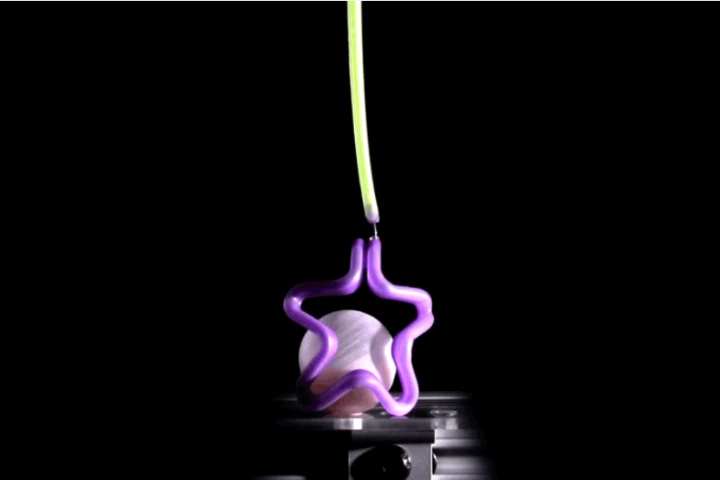Princeton University
-
Although we've seen a number of systems that use sunlight to purify tainted water, their output is often quite limited. A new loofah-inspired hydrogel, however, uses sunlight to treat much more water in one go … enough to meet a person's daily needs.
-
If a robot is going to be tiny, then it better have a way of getting around the many obstacles that will block its way. A new type of robot takes a unique approach to doing so, by jumping like a click beetle.
-
As microplastics pollution and potable water scarcity both worsen, it's becoming increasingly important to find efficient ways of filtering and desalinating seawater. A new aerogel definitely holds some promise, and it's made from egg whites.
-
Before perovskite can become viable for solar cells, it needs to overcome a major durability issue. Engineers at Princeton have unveiled a new perovskite solar cell design that tests suggest could last as long as 30 years of real-world use.
-
Scientists regularly turn to nature for inspiration in their pursuit of next-generation materials, and engineers studying the porous microstructures of bone and wood have come up with a clever example of biomimicry with wide-ranging potential.
-
Evidence shows fasting diets can enhance cancer treatment and a new mouse study has found adding a keto diet to chemotherapy tripled survival time compared to chemotherapy alone. A human clinical trial testing the combination treatment is now underway.
-
Impressive new research has shown how a common diabetes drug can be inactivated by bacterial enzymes produced in the oral and gut microbiome. The researchers speculate this process may explain why the drug is not effective in some diabetic patients.
-
Princeton and the University of Washington researchers have developed a camera the size of a grain of salt that can snap sharp, full-color images. It’s made with a metasurface that captures light and could be scaled up to turn entire surfaces into sensors.
-
Researchers at Princeton focusing on a single gene central to the ability of most major cancers to metastasize have discovered what they describe as a "silver bullet," in the form of a compound that can disable this gene in mice and human tissue.
-
Although soft-bodied robots show great promise for tasks like squeezing through tight spaces, it's a bit counterproductive if their soft appendages are moved by hard actuators. A new technology addresses that problem, via the use of "fancy balloons."
-
Sharing information is crucial for species to survive, but how do simple lifeforms like worms spread the word? New research has found that roundworms can transfer “memories” to their neighbors, and pass them down to their offspring for generations.
-
Princeton University researchers have made a breakthrough in the world of molecular machines, by using self-assembling peptides to form the world's tiniest interlocked biomechanical structures, measuring just one billionth of a meter in size.
Load More











